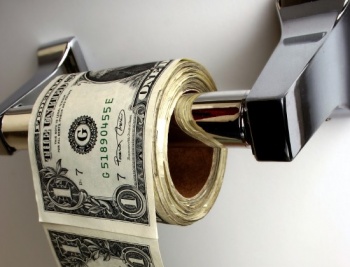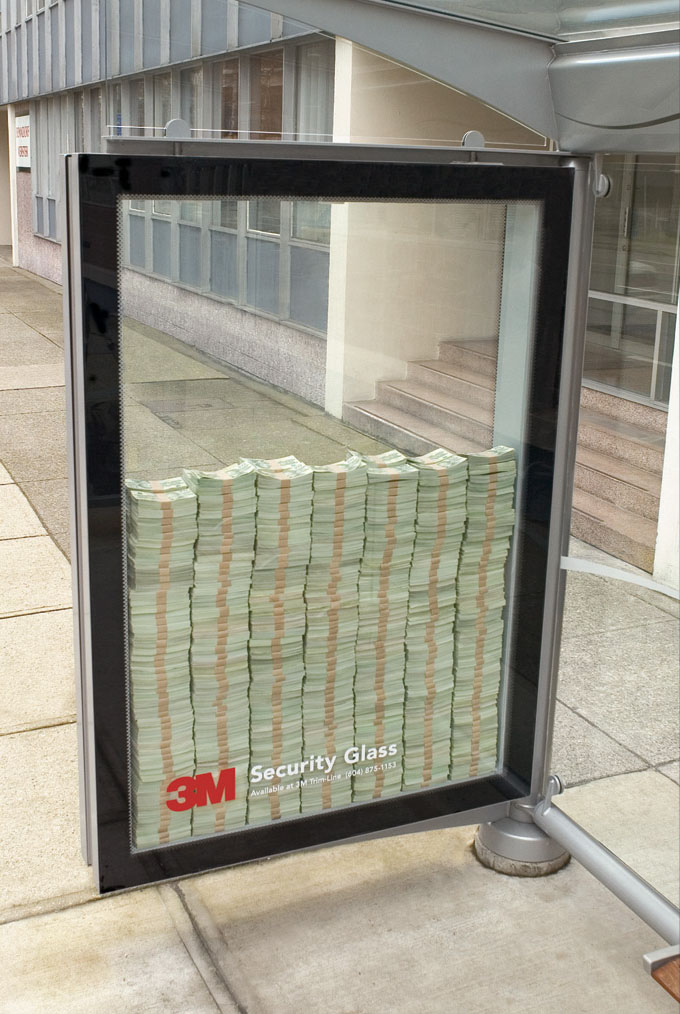Posted by LaPaz, Jungle Watch Correspondent from Spain.
Reading Diana today, she answers some interesting questions about neocatechumenal money. She is near to pinch her fingers when her intelligent interlocutor wants to go further than her simple explanations.
We should differenciate between expenses of a neo-community and expenses of the Way as movement or global charism.
For example, each community uses to have the same expenses for each month: flowers for celebrations (Eucharist, the Word, etc.), person/s who take care of the babies while parents are with their community, place for one day convivence.
Depending on the step where the community is, there are some different expenses for them you have to add to related before: money to buy the food for the agapes (one per month), money to buy Kiko's liturgical articles, money for the catechist team... The more time you stay in the Way, more expensive is per minute.
For all mentioned expenses, the community has its incomes through bags where each one throws cash, in theory depending on personal capability. Maybe a doctor can throw more, an unemployed can not...It depends.
That is the common way for all communities around the world. Until the community reaches the Second Scrutiny. After it, each month for the rest of their lives, all brothers and sisters have to give the TENTH. Each one should give the 10% of all monthly incomes.
What about sporadic incomes, such if you win the lottery or you receive an aunt's heritage? You will add the tenth of that amount plus your monthly tenth.
So, is it possible to talk about "monthly incomes" of a community in the Way? Yes, after the Second Scrutiny.
Who handles the tenth of a community? The responsible. He has to divide the tenth in three parts. Here, there are some different theories. The Statutes do not speak about the tenth, then each community has to learn about the tenth through their catechists.
I will tell you some different explanations:
- One is for the parish, one for the community and one for the Neocatechumenal Center.
- One for the parish, one for the community and one for the diocese.
- One for the parish, one for the community and one for the poor people (this is the most "good willing" one, but maybe the most irrealistic I know).
Nobody can ask the responsible of a community about the way he spends the tenth. Nobody means "brother/sister" belonging to that community. Imagine what does it mean for not belonging people.
It means, the responsible is not obligued to give explanations for his own community members, less yet for an strange to that community.
The responsible only gives explanations for his catechist.
In theory, the tenth is given freely. It is not true. From certain stage on the Way, each month each member is asked about the tenth during a celebration with a team of brothers and sisters (Do you give it? Yes/No; if no, why?). In addition, the catechist will ask one by one the same question in public, it is, in front of all the community.
In the practice, each responsible finally does some adaptations of the instructions he received. For example, if a community has any Redemptoris Mater seminarian walking, then 1/3 of the incomes by the tenth can be destined to that chapter.
The tenth is collected in cash money. It is impossible to pay it in a different way. Do not ask for any receipt. It is all non traced money. In hand (in bag or envelopes).
It means, the tenth is a monthly surely income for a community, a parish, a diocese and each neocatechumenal center.
A parish priest receives 1/3 of the tenth of each neocatechumenal community which has done the 2nd Scrutiny in cash.
I will give an example of an ideal parish in Spain with 5 communities giving the tenth. I will use ridiculous numbers, remain it.
TENTH FOR PARISH PRIEST LEVEL
Each community with 30 members.
Each member pays 100 euros monthly. It means 3.000 euros per community.
1/3 of 3.000 euros are 1.000 euros; 1.000 euros per 5 communities are 5.000 euros monthly for the parish priest. Tax free.
5.000 euros/month, 12 months are 60.000 euros tax free/a year for a parish priest.
TENTH FOR DIOCESE LEVEL
Suppose there are 30 parish in a diocese with the ideal (ridiculous) profile indicated before.
If the diocese receives 1/3 of the tenth per parish it means, monthly:
5.000 euros x 30 parishes= 150.000 euros per month tax free.
150.000 euros monthly x 12 months= 1.800.000 euros per year tax free.
Let's go to NCW LEVEL through all its foundations. Impossible to know. If only we consider there are 1.500.000 of members in the world...I give up, these are too large numbers.
WELCOME TO WONDERLAND! The Neocatechumenal Way means money, a lot of money, in cash and tax free.
Yes, this time we are talking about meeeeeeeeeeellions of meeeeeeeellions in cash and tax free.
Only monthly incomes from the NCW members, whithout considering extra incomes like donations from heritages of neocatechumenal members (money and other assets). In fact, some former members do testify some catechists mention each member could/should leave at least a part of heritage for the Way.
A few days ago I read in a commentary in Jungle about the Achilles heel of the NCW and I say surely it is money. I think the NCW will fail if someone asks for it. I do not know how, when or who.
Definetly, if someone turns off the tap, the NCW will finish in a month.
P.S.: Thank you, Mr. Terlaje for your intelligent questions.
And where does the NCW get money? From church donations?
Reply
Diana, do not lie, please!
More mistery things related with this post: incomes/expenses of families and itinerant people in mission, for example.














thank you for this very clear explanation, la paz.
ReplyDeleteit truly does smell like a money-laundering pyramid scheme.
and that's the other attraction, other than power, with which the ncw tempts priests and bishops: money.
Lapaz, thank you for this very enlightening piece. And thanks to Mr. Terlaje for pressing Diana-the-Dingbat for the NCW’s source of income, to which Diana either tries to confuse him or is confused herself so her responses were, in the end, no responses.
ReplyDeleteI have been wondering about the financial structure of the NCW, and more specifically, the NCW on Guam. The NCW isn’t registered on Guam as a non-profit organization presumably because they consider themselves under the umbrella of the Catholic Church and they take advantage of the 501(c)(3) tax exempt status of the Church. Your description above of how they generate their income [(1) through free-will non-formulated cash donations that go into money bags when a community is in its pre-Second Scrutiny phase and (2) 10% of their monthly personal income given in the form of cash donations, and (3) bequests, etc.] and their lack of record keeping is not in conformance with the requirements of the 501(c)(3).
My understanding is your great explanation is that when a community has reached the “Second Scrutiny” its members donate 10% of their income. The individual who handles the 10% financial donation (made in cash) is the “Responsible” of that community. The 10% financial cash donation is, theoretically, supposed to be divided by the Responsible in three equal parts and allocated to (1) the parish; (2) the community; and (3) a Neo Center, the diocese, the poor, or in support of an RMS. The donors receive no accounting of their (cash) donations. The Responsible has no obligation to provide information to the community members of about the donations, including the amount received and how the donations are spent (or saved up somewhere in someone’s bank account). While community members (who are the donors) are not privileged to that financial record keeping information, the Catechist (a higher-up of the Responsible) has access to this information. Interesting.
First, if the NCW assumes its financial operation is under the umbrella of the 501(c)(3) status of the local Catholic Church yet it claims not to maintain financial records, bank accounts, or be accountable to its donors, the NCW is failing on the reporting requirements of the 501(c)(3). Secondly, where does the NCW keep the 1/3 allocation of its cash donations to its communities? Under the mattresses in the RMS? In a private account in the Responsible’s and/or Catechist’s name, a sub-account within the local Catholic Church? Third, if the 1/3 allocation is made to the parish, how does the parish record those donations? Fourth, if the 1/3 allocation is made to the diocese, how does the diocese record that donation? Does the diocese give a receipt to the NCW? If you’re a 501(c)(3), you’re supposed to track your parishioners’ donations and then mail on or before January 30th a statement to each parishioner of his/her donations so that, if they are eligible, they can claim a tax break for their donations to their parish. If the Responsible doesn’t keep track of his/her communities’ cash donations, how will he/she (and/or the parish) provide a donation statement to the members? Here, the Responsible is also breaking the law of the 501(c)(3) requirements.
ReplyDeleteThe NCW’s practices are not compatible with the laws of Guam. Their practice of the scrutinies may have yielded disclosures of child molestations and other crimes, yet those disclosures go unreported. Their form of collecting tax-free cash donations and not providing a donation statement to the donors per 501(c)(3) and not maintaining financial records are practices that break the law. The NCW purports itself to be part of the Catholic Church of Guam. With these practices, they are a liability for the local Church. The local Church is, unfortunately, sooner or later going to be on the hook for the way the NCW manages its religious and financial affairs. It’s really time for them to go!
The command to tithe is given to the members of the sect shortly after their Rite of Salt, in a session called "Catechesis on the Way". Read more.
ReplyDeleteThank you, Chuck, for the links. Your writing on this topic is also very informative. The question still remains for me: where are the NCW donations kept? maintained? who maintains them? They are also operating, presumably, their collection program under the 501(c)(3) exemption status of the Catholic Church, but they are not adhering to the exemption's record keeping and reporting (to their donors, and other entities) requirements. Very interesting mystery.
ReplyDeleteI'm still waiting for a logical explanation from Diana, but we just keep going in circles...like the money.
ReplyDelete"Logic" and "Diana"-the-Dingbat in the same sentence is an oxymoron.
DeleteLOL!!
DeleteLooks like Diana doesn't want to talk to me anymore. Que sera, sera.
ReplyDeleteBecause you don't tithe that's why you don't know Mr.Terlaje.LOL
ReplyDeleteLOL! Anon@ 6:22: You're too funny!
ReplyDeleteExcellent Blog! I would like to thank for the efforts you have made in writing this post. I am hoping the same best work from you in the future as well. I wanted to thank you for this websites! Thanks for sharing. Great websites! Learn - what is clickbank
ReplyDelete